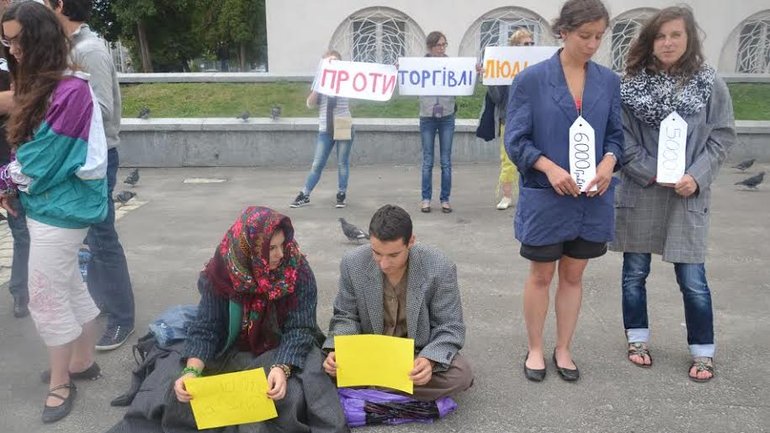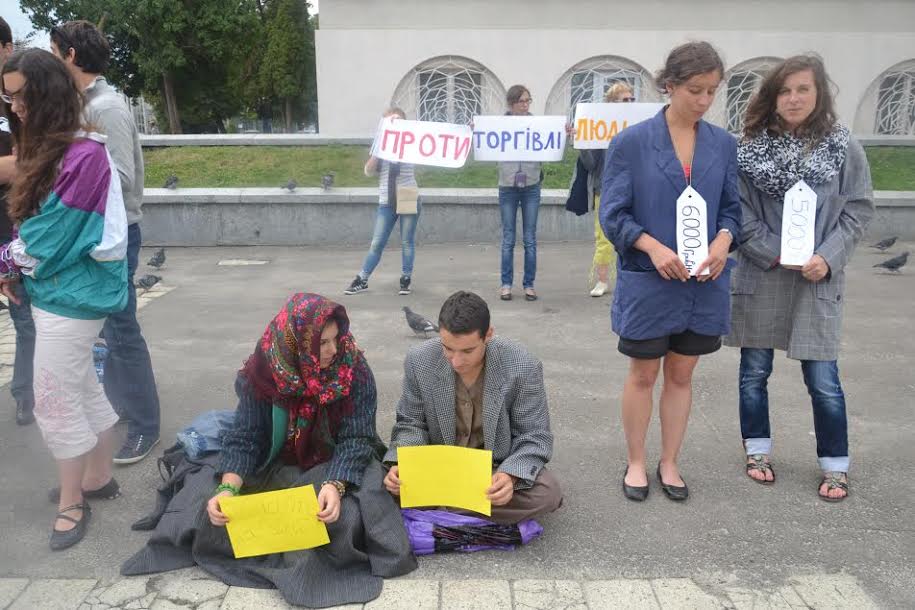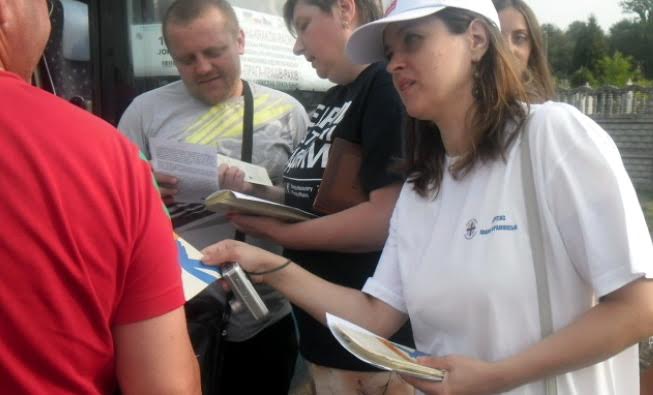Caritas Ukraine assists victims of trafficking

On the occasion of the European Day against Human Trafficking, celebrated every year on October 18, Caritas Ukraine will present the first results of the project “Support to the network of counseling centers for trafficked people” in five regions of Ukraine - Kyiv, Kharkiv, Odesa, Lviv and Ivano-Frankivsk, as well as the results of a pan-European study held by the partners of Caritas France “Human trafficking in the countries of armed conflict and post-conflict situations.”
As the press service of Caritas Ukraine told RISU, counseling centers to help victims of trafficking deal with the prevention of human trafficking, counseling potential victims and provide specific financial, psychological and legal assistance to those trapped in a crisis situation. During the first months of the project 23 victims were identified (12 men and 11 women that denies a widespread perception of purely "feminine" nature of the phenomenon.) They received professional comprehensive reintegration assistance. Disturbing is the fact that 40% of victims are internally displaced persons which requires to pose a question about a new potential risk that is out of sight of officials. Most of the people that Caritas project took care of suffered from labor exploitation (78%). The official status of the victim granted by the Ministry of Social Policy and State Aid was assigned to only one person.

According to the report, Caritas does not limit itself to work with people who have suffered, but is trying to focus on preventive activities – mobile advisory groups have been established, the information, advisory activities and training have been held, more than 2.5 thousand people of vulnerable population have been consulted. The main success of the project is saved people's lives, the history of each person under care is a lesson to others, an example of how ignorance and short-sightedness can cause personal tragedy.

Story of Timur (21)
A migrant from Crimea and his family moved to Lviv, received the status of IDPs, but could not find work. One of the employment companies has promised to find a job in Germany and to pay for mediation services he had to borrow a large sum of money. But instead of the promised Germany the guy found himself in a small border village in Poland, where he was "temporarily" left by the mediator on a small farm. The guy did not see the mediator any more and had to work for pennies on the farm, living in a hut, work hard to care for cattle (7 days a week, 16 h.). Only having collected some money he succeeded to return to Lviv region. Today, thanks to the support of Caritas, Timur managed to stand up, find a job, his life began to improve.
Story of Pavlo (54 years)
Before the combat action began, he worked at the airport of Lugansk, where during the first separatist shelling he got a bad foot injury on the left leg, due to which he could not leave the city in time. Later the militants forcibly broke into his home, threw him into the car, kept in the basement for a long time, threatening, took him to forced labor. Within 3 months, Pavlo and seven more Ukrainians daily dug trenches and bunkers, 12-14 hours a day. They had to sleep in the barn on the floor having only bread and water instead of food. Men were regularly beaten, morally humiliated. During the Armed Forces of Ukraine attack, the prisoners managed to escape, Pavlo came to Odessa, appealed for help to Caritas as IDP, but during a full-scale interview he identified as a victim of labor exploitation. He is still provided psychological support, as well as targeted financial and medical assistance.
Meanwhile, the above study “Human Trafficking in the countries of armed conflict and post-conflict situations” helps Caritas employees in organizing and planning methods of assistance. Although it was based mainly on the situation in the Balkan countries, Turkey, Lebanon and Armenia, the results of its findings are useful for Ukraine. Most investigated kinds of trafficking are common to all countries, and the path that Balkans made after armed conflict may be facing us, including the increased incidence of human trafficking and the emergence of new types of modern slavery.
According to the survey, most typical forms of human trafficking in countries of conflict are:
- economic exploitation, which has many varieties and includes use of labor, drug trafficking, debt bondage.
- Use of children and their involvement in armed conflict.
- compelling to begging, involvement in criminal activities of vulnerable groups such as ethnic minorities.
- smuggling of migrants, their illegal removal and subsequent exploitation.
The important findings of this study include the need for fundamental changes in the structure of social services, health and education in the country, and not just the introduction of short-term programs or small donor projects. Although Ukraine has ratified all international documents, including the adopted relevant legislation, the issue rarely enters the circle of government interest. Caritas Ukraine calls on officials not to ignore the problem and develop measures necessary to address it.
Reference: European Day of fighting human trafficking was introduced by the European Parliament in 2007 as a day of consolidation to raise awareness of the phenomenon of trafficking in persons, especially women and children, public indifference to this phenomenon and visualization problems on a global level. By definition, the US State Department report on human trafficking in the world in 2016, Ukraine is “a country of origin, transit and destination for men, women and children subjected to forced labor and sexual exploitation.” The same report noted that internally displaced persons in Ukraine are especially vulnerable to exploitation. According to the International Organization for Migration (IOM) since independence the trafficking victims were more than 160 000 Ukrainians.
___________
Ukraine is a member of Caritas Internationalis – an association of more than 160 national Caritas units that help needy every year tens of millions of people in nearly 200 countries. Since the formation of the first Caritas in Germany in 1897 and nowadays Caritas listens to people in need and provides them with the means to change their lives for the better. Fundamental moral and spiritual principles of dignity, justice and solidarity are the basis of Caritas today. The first Caritas organizations in Ukraine appeared in 1992. Since then, hundreds of thousands of needy Ukrainians received material, social, psychological and legal assistance. Almost 1000 employees and volunteers are working on the basis of more than 20 regional organizations in 15 regions of Ukraine.









